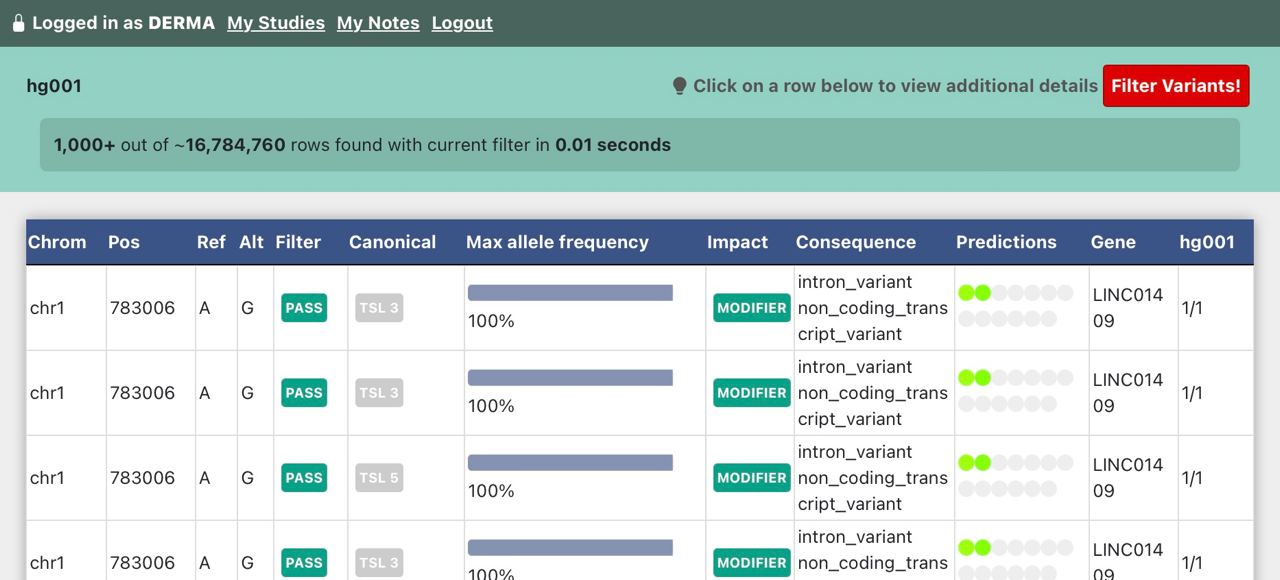Medical Genomics
Medical genetics focuses on identifying rare mutations that have a significant impact on a small number of individuals. These variants are difficult to detect, as they are part of the approximately 5 million variable loci found on average in every human. The current process for identifying potentially pathogenic variants involves a series of time-consuming and challenging filtering steps, creating an annotation bottleneck.
To address these challenges, we working on analysis workflows and develop software that facilitates variant interpretation. Our approach builds on well-established methods and international standards developed by organizations like Global Alliance for Genomics and Health (GA4GH) and guidelines recommended by the American college for Medical Genetics and Genomics (ACMG).
Moreover, we are exploring the potential of machine learning-based techniques to enhance variant prioritization. Through the development of clinical natural language processing models CNLP models, we aim to convert free text into machine-readable code, seamlessly integrating patient data to improve variant prioritization accuracy.
Our software is under constant development, but you can try it out and look at publicly available Genome in a bottle sample (HG001):
Visit: https://derma-genomics.meduniwien.ac.at
User: DERMA
PWD: #W39!o%L*+fI
People involved in the project: Matthias Wielscher (Project Coordinator), Moritz Stadler

